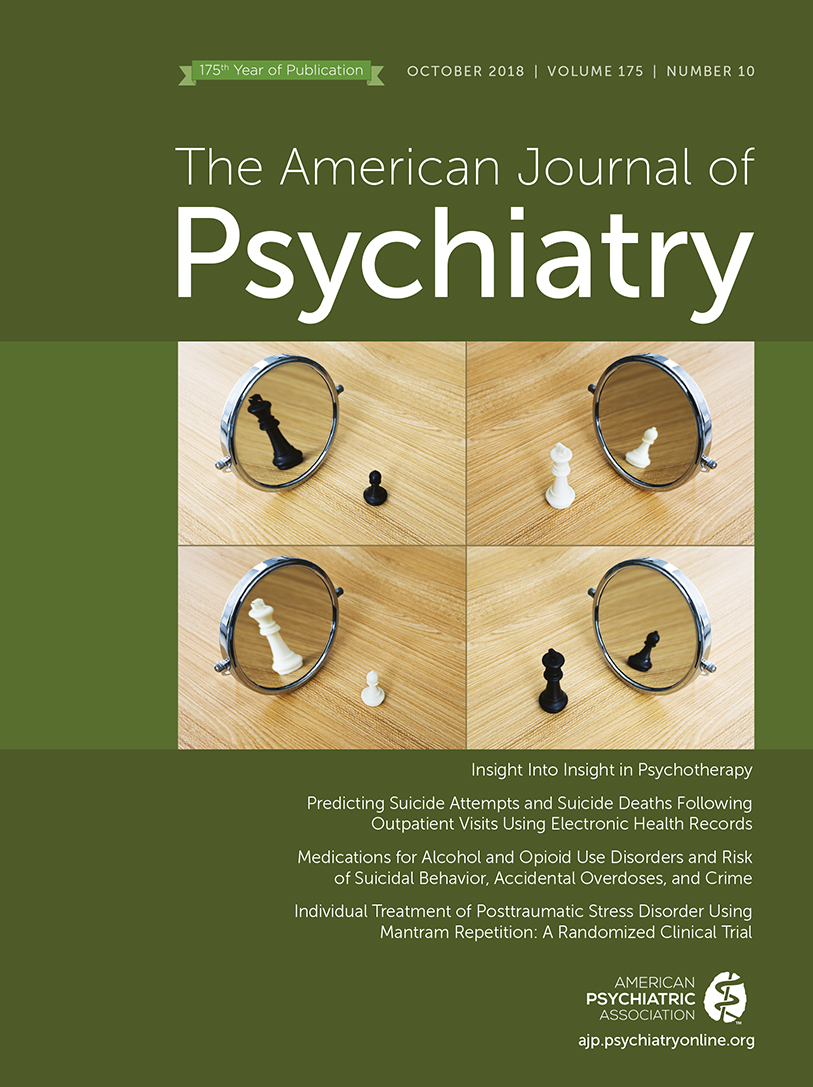Dire Need for New and Improved Therapies for PTSD: Response to Markowitz
To the Editor: We thank Dr. Markowitz for his comments on our historical overview of the treatment of posttraumatic stress disorder (PTSD). In our overview, we emphasized that trauma-focused psychotherapies with prominent exposure and/or cognitive restructuring elements have the strongest evidence base for their utility. This statement is entirely consistent with the recommendation in the 2017 practice guidelines from the U.S. Department of Veterans Affairs and Department of Defense (1) that Dr. Markowitz refers to in his letter. Although it is indeed the case, as Dr. Markowitz mentions, that treatments such as interpersonal psychotherapy (IPT) “are beginning to appear in treatment guidelines,” those same practice guidelines indicate that the evidence in favor of IPT is weak (1).
We wholeheartedly agree that there are some promising new (and repositioned not so new) therapies for PTSD on the horizon (e.g., psychotherapeutic, psychopharmacological, device-based), and we anxiously await their further testing. If proven effective, beyond single studies, they will no doubt begin to be used and will offer much-needed alternatives to existing therapies, none of which currently meet the needs of all patients with PTSD.
1



